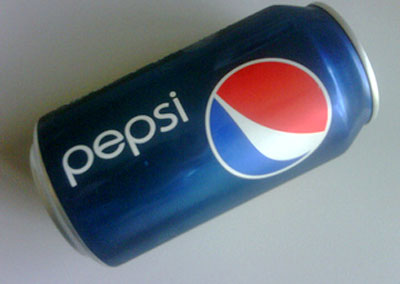|
by Nick Turse September 3, 2011 from AlterNet Website
Photo Credit: israelavila via flickr
Chances are, if you’ve ever sent a package overnight, bought a PC or a can of soda, you’ve paid your hard-earned money to a major Pentagon contractor.
While large defense corporations that make fighter jets and armored vehicles garner the most attention, tens of thousands of “civilian” companies, from multi-national corporations hawking toothpaste and shampoo to big oil behemoths and even local restaurants scattered across the United States, all supply the Pentagon with the necessities used to carry on day-to-day operations and wage America’s wars.
And they’ve made a killing doing it
since 9/11.
In 2001, the massive arms dealers Lockheed Martin, Boeing and Northrop Grumman ranked one, two and five among Department of Defense contractors, raking in $14.7 billion, $13.3 billion and $5.2 billion, respectively, in contracts.
Last year, Lockheed’s contract dollars were
almost double their pre-9/11 level, clocking in at $28 billion, while
Boeing’s had jumped to almost $19 billion and Northrop Grumman, still in the
five spot, had more than doubled its 2001 take, with $12.8 billion in
contracts.
On September 10, 2001, Lockheed’s share price was $38.32. Today, it tops $70 per share. In 2001, the company’s net sales reached $24 billion. Last year, they were almost $46 billion. Likewise, Northrop Grumman’s net income has more than quadrupled in the last decade, according to the investment analysis website, Seeking Alpha.
Still, these corporations are just a fraction of
the story when it comes to the massive sums of money made by the military
contractors since September 11, 2001.
Even accounting for all the funds paid out for troop salaries, overseas bases construction and the training and equipping indigenous allies in Iraq and Afghanistan, among many other costs, it’s clear that vast sums of Pentagon money are flowing somewhere other than to the top weapons-makers. Unknown to most U.S. taxpayers and even many Pentagon-watchers, some of the largest and most recognizable corporations in the world have also been getting rich on America’s wars.
Below are five examples of “civilian” companies that have reaped major rewards from the Pentagon during its last decade at war:
Other big-name firms that are regularly awarded large, lucrative deals from the Defense Department include:
A decade of waging wars abroad, from Iraq and Afghanistan to Pakistan and Libya to Yemen and Somalia hasn’t been kind to average Americans.
As the United States poured nearly $8 trillion into national security spending, and the national debt ballooned from $6 trillion to $14.3 trillion, the official unemployment rate has more than doubled - from 4.5% to 9.1%.
Meanwhile the number of children living in
poverty in the U.S. has jumped nearly 20% since 2000, according to the
National Center for Children in Poverty. And for older Americans, the risk
of hunger has spiked almost 80% since 2001, according to
a recent report by
AARP. But from car companies to candy makers and even the
biggest brands in
organic food, so many of the world’s favorite companies have, over these
years, cashed in on America’s wars.
Today, however, the "large arms industry" that Eisenhower warned about is only part of the equation.
Civilian firms such as FedEx and PepsiCo form the backbone of what more accurately can be described as a military-corporate complex of “civilian” businesses that enable the Pentagon,
Almost a decade after Eisenhower's farewell address, there were still only about 22,000 prime contractors doing business with the Department of Defense. Last year, according to U.S. government records, the number stood at almost 135,000.
The reasons why are simple. Big war budgets and
ever-increasing national security spending have made the Pentagon’s deep,
taxpayer-filled pockets especially attractive as a stable source of income
in economically uncertain times.
...or paid for cell phone service from AT&T or Verizon - all of them big-time defense contractors.
These and other large corporations have done very well, reaping rewards not only from Americans at the checkout counter but from their tax dollars by way of the Pentagon.
Meanwhile, halfway across the planet, large
numbers of Afghans and Iraqis - who have seen their lives upended, their
homes destroyed, and their family members killed and wounded - have suffered
as a direct result of the efforts of these and other members of the
military-corporate complex.
And with it, the U.S. civilian economy is sure
to become further militarized by stealth corporations cashing in on a state
of permanent war, while the American public remains largely oblivious to
their role in the military-corporate complex and America’s war-making
overseas.
|

